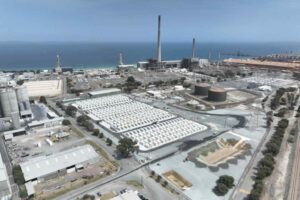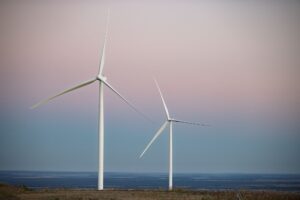Federal energy minister Chris Bowen says he will not agree to a ban on all new coal and gas mines in Australia, but is happy to continue to discuss the conditions under which the Greens might support Labor’s revamped Safeguard Mechanism, to get it through Parliament.
This might sound like the sort of double-speak parents use in negotiations with their offspring, but as Bowen keeps saying, Labor is a government of adults: “Mature, sensible adults willing to talk to people of good faith.”
Happily, this appears to include Greens leader Adam Bandt, who used his own grown-up approach to politics on Thursday morning to stress that his party’s position on Safeguards is an “offer” and not an ultimatum.
From both parties, this is good to hear. So very refreshing after a decade of name-calling, blind-siding and point-scoring. But where does this leave us? How do you negotiate what looks, on paper, to be non negotiable?
Bowen seems confident there is a way, telling ABC Radio National on Thursday morning that there is some time to go, yet, with public submissions on the proposed reforms to the Safeguard Mechanism still open until later this month.
“There’s people putting in submissions as we speak. That’s the way we like to do business. Put it out, get feedback. I read all the submissions, work through all the issues, see if there are any changes necessary, take on board the feedback,” the minister said.
“Some people say our policy goes too far, others say it goes not far enough; welcome to climate change policy, that is inevitable.”
Bowen argues that getting the Safeguard Mechanism reforms through parliament is about getting “a big piece of meaty, substantial, practical policy” up and running, as the “best chance of reducing emissions in almost a third of our economy.”
The Greens “different view,” as Bowen puts it, is that any national carbon accounting scheme worth its salt should go well beyond Scope 1 emissions all the way to Scope 3 emissions, such as are created when you extract coal or gas from Australian soil and ship it overseas for burning in a power plant or blast furnace.
Both approaches have merit – a carbon price will work to shift the (already terrible) economics for fossil fuels so that it very soon no longer makes any sense to develop new coal and gas projects for any reason.
To set aside Scope 3 emissions, however, ignores the climate elephant in the room (and the science), that any and all new fossil fuels are “incompatible” with the keeping global warming below 1.5°C.
One question that Bowen pointedly did not answer from ABC RN’s Patricia Karvelas was this: “Why do you need to have the right to approve new coal and gas? Why is that necessary?”
It’s a very good question and, in the Australian context, the response requires some very deep soul-searching.
Climate Energy Finance founder and director Tim Buckley, who supports the bulk of Labor’s proposed Safeguards Mechanism reforms, says that any argument that Australia needs new coal and gas supplies is “pure fossil fuel spin.”
“It’s an outright lie to say that without more coal and more gas the lights will go out,” Buckley told RenewEconomy on Thursday.
“What we actually saw was that the lights almost went out six moths ago because we have been listening to people who are in the employ of [Australia’s fossil fuel lobby.
“More gas is 100% not going to do anything to support Australia’s economy,” Buckley adds, while “acting on the climate science is a really, really massive economic opportunity for Australia.”
But Buckley also sees the need for a well regulated carbon market, complete with high quality offsets.
“People are really underestimating the financial benefit of getting a high, regulated price on carbon into the Australian economy,” he said. “To me that is a massive win.”
So the debate continues – and thank whatever gods take your fancy that it continues to be conducted by adults.
As the University of Newcastle’s Hao Tan wrote here last week, “To phase out fossil fuels remains the hardest challenge we face. The solutions will have to be hashed out politically.”








